Register for free and continue reading
Join our growing army of changemakers and get unlimited access to our premium content
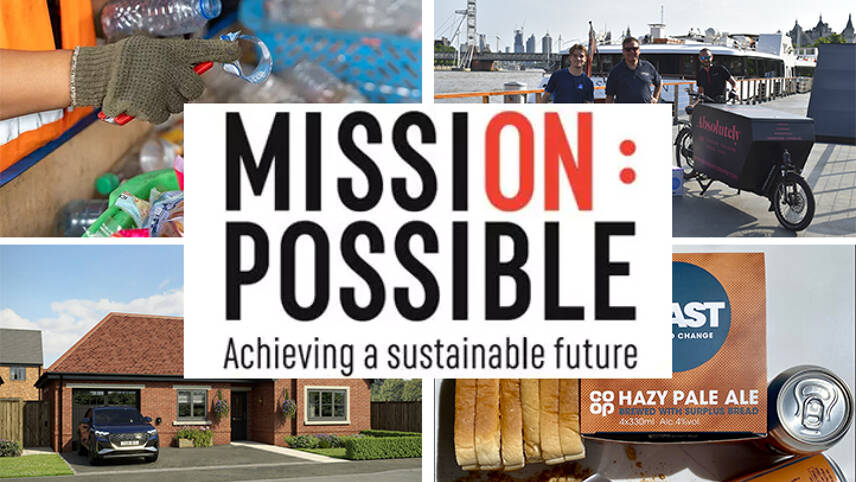
Published every week, this series charts how businesses and sustainability professionals are working to achieve their ‘Mission Possible’ across the campaign’s five key pillars – energy, resources, infrastructure, mobility and business leadership.
Across the UK and the world, leading businesses, cities, states and regions are turning environmental ambitions into action. Here, we round up five positive sustainability stories from this week.
ENERGY: Flexible energy pilot planned in Lithuania by British Piclo
One of edie’s popular articles of recent times outlines how peer-to-peer energy trading and smart electric car charging could help UK homes cut costs – and carbon.
Off the back of that article, we received news that British firm Piclo, which provides a digital marketplace for energy flexibility, has agreed a partnership with Lithuanian energy distribution network Energijos Skirstymo Operatorius to develop the local flexibility market.
Those operating devices that provide flexibility, like batteries, are being encouraged to register details of their assets. The network will then assess whether these projects can provide all or some of its flexibility requirements now or in the future. Learnings will be applied from a similar collaborative project in Northern Ireland.
Piclo co-founder and chief execurive James Johnston said: “We’re all really looking forward to getting started on this project with ESO. It comes at an incredibly important time for Lithuania and Europe more broadly as our energy markets accelerate the shift towards renewables. This transition will require an equally rapid scaling of flexibility markets to open up new opportunities and ensure everyone has access to reliable clean power, and this can only be achieved through greater collaboration and by proactively engaging the market.”
RESOURCES: US Government increases support for plastic pollution removal in Asia
The US’s flagship Inflation Reduction Act has received much media coverage this week, badged as the most important climate legislation in a generation for the nation. One study concluded that its measures to reduce emissions in the energy and transport sectors could reduce domestic emissions by at least 42% by 2030 – so long as work is now done to simplify permitting and close the skills gap.
Less has been said about the US Agency for International Development (USAID) signing a new collaboration agreement with Prevented Ocean Plastic South East Asia, ahead of this year’s G20 summit in Indonesia. Around 80% of marine plastic debris can be traced back to land-based plastic waste, and plastic waste in this market is growing as rapid urbanisation outpaces the development of better waste management systems.
USAID will provide funding and knowledge to help improve and expand waste collection and recycling capacity in Semarang, Indonesia, in collaboration with the local government. The project will cover the expansion of facilities and the training and employment of local people to staff them.
Facilitating the funding is Circulate Capital. Also supporting are Polindo and Bantam Materials, which manufacture goods from recycled prevented ocean plastic.
MOBILITY: Shift from road to river for London shipments, in bid to cut emissions
Image: Cross River Partnership
Transport has been the UK’s most-emitting sector since 2016. It accounted for 27% of national emissions in 2019, with the majority (91%) arising from road transport. For heavy loads being transported through London, a potential solution is switching from road to river, which can halve emissions.
A new trial of this approach commenced last week as part of the Government-funded Clean Air Villages project. Involved in the trial, which is spearheaded by the Cross River Partnership non-profit, are the Northbank Business Improvement District, Port of London Authority, iRecycle waste management, The Mayflower, packaging firm Antalis and operators of the Thames’ piers.
Businesses in The Northbank BID and surrounding areas are being invited to order office and cleaning suppliers from participating suppliers during a six-week pilot period. Goods will travel down the Thames from Dartford and Woolwich, arriving into Woods Quay. Last-mile journeys will then be taken using zero-emission options like cargo bikes. Businesses will be supported to consolidate deliveries and waste.
The Port of London Authority’s director of planning and development James Trimmer said: ““London businesses’ office supplies, such as stationery, are far better transported by river than ending up stationary on the capital’s congested roads. This pilot is set to further unlock the tidal Thames’s huge potential to improve air quality, by reducing road traffic in London, and help on the river’s journey towards net-zero.”
THE BUILT ENVIRONMENT: Homes go on sale at Worcestershire’s ‘most energy-efficient’ development
Home energy efficiency has been high on the national news agenda in recent weeks, with the heatwave pushing the need for cooler homes to the front-of-mind and Ofgem’s price cap announcements turning attentions back to skyrocketing bills on the horizon.
Some good news in this space comes from Hayfield Homes, which has just launched to market the first homes at its development in Hallow. The Hayfield Grove development has 55 homes and all have been designed to achieve an EPC rating of A. Each home is connected to air-source heat pumps for water heating and for serving energy-efficient underfloor heating.
There is also on-site solar at the development. All homes will be served using 100% renewable electricity, from a combination of tariffs and onsite generation.
Hayfield Homes claims that the development meets the Future Homes Standard, which will be required from all developers by 2025.
Hayfield’s regional sales director Shelley West said: “There has been a high level of interest for this eco-efficient new development since construction work commenced earlier this year, especially in the context of the energy price rises of late.”
BUSINESS LEADERSHIP: Toast launches new beer brewed using Co-op’s surplus bread
Toast Ale, the B Corp certified brewery which uses surplus bread to make ‘circular’ beers, has featured several times on edie over the years. Bread is a regular feature in lists of the top wasted foods in the UK, both in homes and at the pre-consumer level, due to its short shelf life and low price point.
Now, the brand has announced a partnership with supermarket the Co-op, to launch a new pale ale made using surplus bread from the Co-op’s supply chain. It is hoped that half a tonne of bread will be diverted from waste through being used as a replacement for malted barley in the brewing process.Called ‘Hazy Pale Ale’, It is on sale at Co-op stores in multipacks of four cans.
“It’s been great to work with Co-op and their suppliers and we hope it will inspire
other retailers to do more to prevent food waste in their supply chains,” said the Co-op’s beer buyer Jonathan Price.
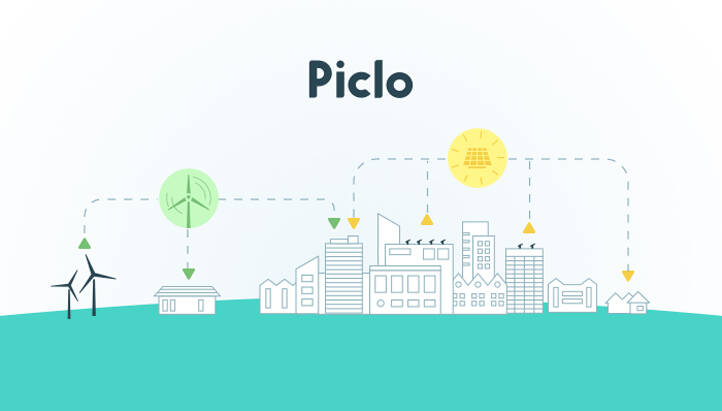
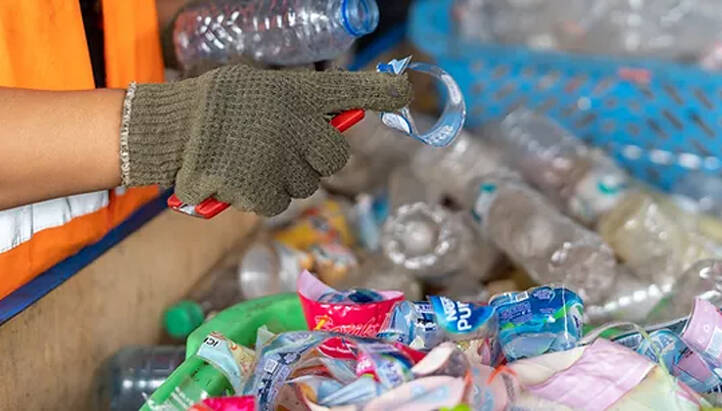
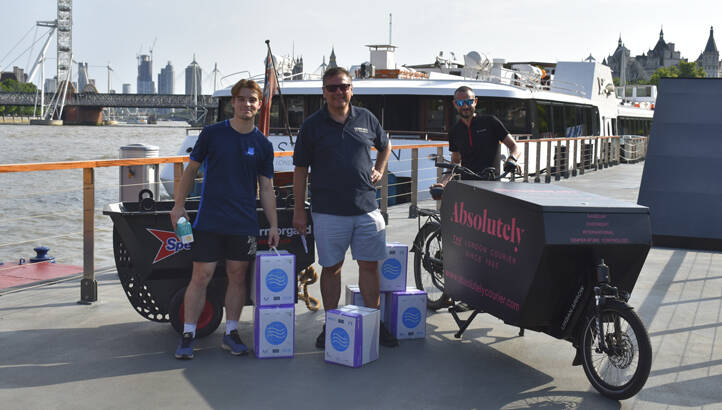

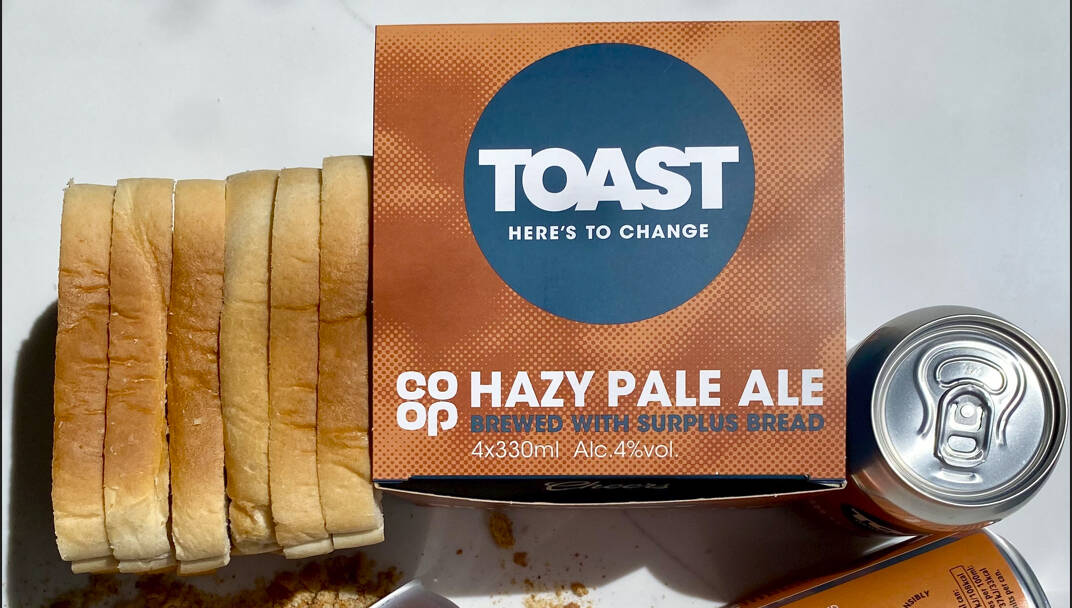


Please login or Register to leave a comment.